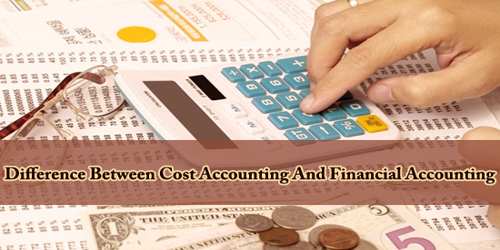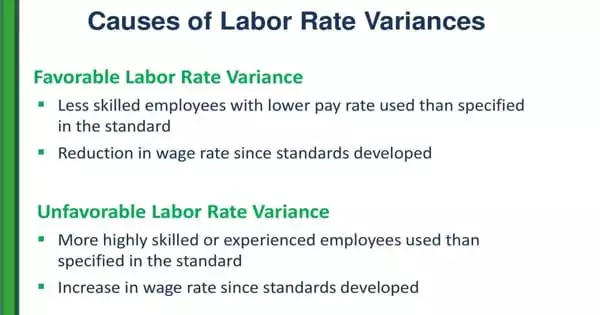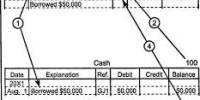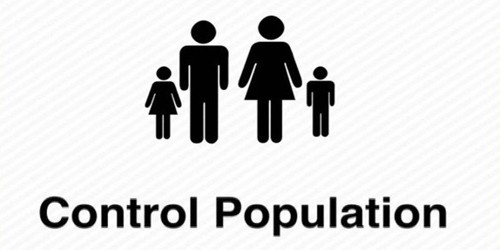Definition of Cost Accounting –
Cost Accounting is the field of accounting that is used to record, summarize, and report the cost information on a periodical basis. Its primary function is to ascertain and control costs. It helps the users of cost data to make decisions regarding the determination of selling price, controlling costs, projecting plans and actions, efficiency measurement of the labor, etc.
The main task of cost accounting is to arrange records and identify suitable allocation of investment to determine the costs of the goods or services. Present suitable data to control and guide the management, this includes finding out the cost of every shipment, contract, process, and service or unit job. It is also related to the cost of selling, production, and distribution. There are two types of Cost Accounting systems, they are:
- Non-Integrated Accounting System: The accounting system in which a separate set of books is maintained for cost information.
- Integrated Accounting System: The accounting system in which cost and financial data are maintained in a single set of books.
Therefore, it has the ability to analyze, classify the expense of a particular production unit or service, determine the accuracy and give an exact idea on how much cost is required for the material, labor, and other expenses to get control and reduce the cost.
Definition of Financial Accounting –
The meaning of Financial Accounting can be defined as a procedure of documenting, encapsulating, and reporting the multiple transactions resulting from trading operations over a timeframe. These transactions are compiled in the preparation of financial statements, comprising the income statement, balance sheet, and cash flow statement that record the enterprise’s operating accomplishment over a particular period.
Financial accounting is a specific accounting branch that maintains a company’s financial activities. With the help of regulated guidelines, all the transactions are entered, reviewed, and shown in a financial statement or financial report.
The preparation of financial statements is the major objective of financial accounting in a specified manner for a particular accounting period of an entity. It includes Income Statement, Balance Sheet, and Cash Flow Statement which helps in, tracing out the performance, profitability, and financial status of an organization during a period.
The information provided by financial accounting is useful in making comparisons between different organizations and analyzing the results thereof, on various parameters. In addition to this, the performance and profitability of various financial periods can also be compared easily.
There are a number of differences between cost accounting and financial accounting, which are as follows:
- Financial accounting involves the preparation of a standard set of reports for an outside audience, which may include investors, creditors, credit rating agencies, and regulatory agencies. Cost accounting involves the preparation of a broad range of reports that management needs to run a business.
- The reports prepared under financial accounting are highly specific in their format and content, as mandated by either generally accepted accounting principles or international financial reporting standards. Cost accounting involves creating reports that can be in any format specified by management, with the intention of including only that information pertinent to a specific decision or situation.
- Financial accounting primarily focuses on reporting the financial results and financial position of an entire business entity. Cost accounting usually results in reports at a much higher level of detail within the company, such as for individual products, product lines, geographical areas, customers, or subsidiaries.
- Cost accounting compiles the cost of raw materials, work-in-process, and finished goods inventory, while financial accounting incorporates this information into its financial reports (primarily into the balance sheet).
- The structure of financial accounting reports is tightly governed by either generally accepted accounting principles or international financial reporting standards. There is no regulatory framework governing cost accounting reports.
- A financial report contains an aggregation of the financial information recorded through the accounting system. The information in a cost accounting report can contain both financial information and operational information. The operational information can come from a variety of sources that are not under the direct control of the accounting department.
- Financial accounting personnel issue reports only at the end of a reporting period. Cost accounting staff may issue reports at any time and with any degree of frequency, depending upon management’s need for the information.
- Financial accounting is only concerned with reporting the results of reporting periods that have already been completed. Cost accounting does this too but also can be involved in a variety of projections for future periods.
In brief, the key differences between cost and financial accounting are that cost accounting is inwardly focused on management decisions, while financial accounting is focused on issuing financial statements to outside parties.
The information provided by Cost Accounting is helpful in the decision making of the managers to control costs, but it lacks comparability. The information provided by financial accounting is capable of making comparisons, but future forecasting cannot be done through this information. That is why they both go side by side; in fact, cost accounting data is helpful for financial accounting.
Information Sources:
















